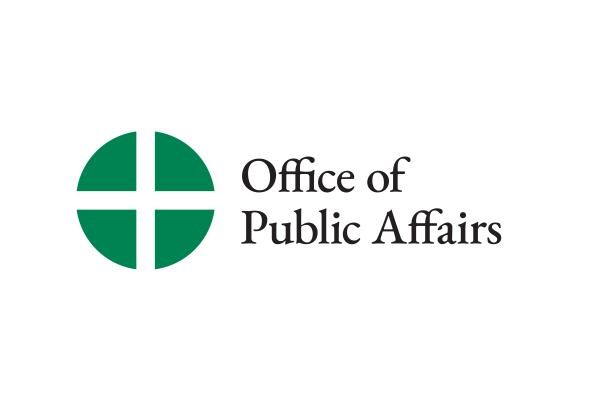Leaders Mourn Passing of Father Edward Flannery, A Pioneer in Catholic-Jewish Relations
WASHINGTON -- Cardinal William H. Keeler, Episcopal Moderator for Catholic-Jewish Relations, National Conference of CatholicBishops (NCCB), called Father Edward Flannery "an early and effective pioneer" in fostering positive Catholic-Jewish relationships.
WASHINGTON -- Cardinal William H. Keeler, Episcopal Moderator for Catholic-Jewish Relations, National Conference of CatholicBishops (NCCB), called Father Edward Flannery "an early and effective pioneer" in fostering positive Catholic-Jewish relationships.
Father Flannery, 86, a priest of the Diocese of Providence, died of pancreatic cancer, October 19. Author of the 1966 book The Anguish of the Jews,Father Flannery was the first Director of Catholic-Jewish Relations forthe Bishops' Committee for Ecumenical and Interreligious Affairs, serving from 1967 to 1976.
Other tributes to the priest's achievements came from Rabbi A. James Rudin, National Interreligious Affairs Director of the American Jewish Committee, (who termed Father Flannery "one of this century's spiritual giants"), Father John F. Hotchkin, Director of the NCCB Secretariat for Ecumenical and Interreligious Affairs, and Dr. Eugene J. Fisher, who succeeded Father Flannery as Director for Catholic-Jewish Relations forthe Bishops' Conference.
"With all who knew Father Edward H. Flannery and all who are concerned about relations between the Catholic and Jewish faith communities, I mourn his death," Cardinal Keeler said. "He was an early and effective pioneer in encouraging Catholics in the United States on how best to implement Nostra Aetate, the Second Vatican Council's charter forfostering positive Catholic-Jewish relationships. Early on, I was deeply moved by the history he recounted and analyzed inhis book The Anguish of the Jews. He came willingly into local dioceses, bringing both information and inspiration to many of us in different parts of the United States. May he rest in peace."
According to Rabbi Rudin, Father Flannery's book "shattered negative caricatures and stereotypes that had existed for centuries. Father Flannery was an unrelenting foe of all forms of anti-Semitism and was a strong supporter of the State of Israel," Rabbi Rudin said.
"The American Jewish Committee especially mourns Father Flannery's death," Rabbi Rudin continued. "His advice and guidance were always treasured and his articulate voice and writings stirred both Catholics and Jews. The AJC has lost a beloved colleague and friend."
Father Hotchkin said: "In any telling of the story of American Catholicism, the ground breaking work of Edward Flannery shall have to be a part. He spanned the wide gulf of incomprehension which lay between American Catholics and American Jews, two immigrant communities with much in common but with very different memories of the past."
Dr. Fisher suggested that "the best way for us to remember Father Flannery is by continuing his efforts to bring together in reconciliation the Catholic Church and the Jewish People, who at the time he began his vocation in this work had been estranged, by and large, for many centuries. Here in America, as Father Flannery used to say, we have a unique opportunity to move forward the process of healingsince we enjoy the world's largest Jewish community alongside a healthyCatholic community. May his name be a blessing for us all."
Speaking at a Mass of Thanksgiving on the occasion of the priest's 50th anniversary of ordination, in 1987, Msgr. George G. Higgins of the Department of Theology of the Catholic University of America, said Father Flannery had been called by God to break new ground, "to address the anguish of the Jews and this, of course, long before the overwhelming majority of his fellow Christians had given so much as a second thought to the Holocaust."
Text of Cardinal William Keeler's statement.
Text of Rabbi A. James Rudin's statement.
Text of Father John F. Hotchkin's statement.
Text of Dr. Eugene J. Fisher's statement.
Text of Rev. Lawrence Frizzell's statement.

